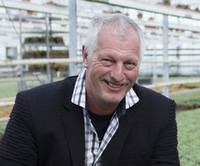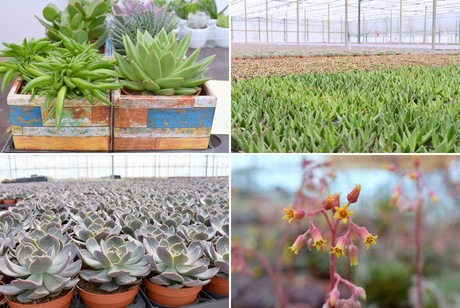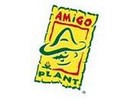The whole point of having a plant passport is the traceability of the  product. According to Gerard van Langen, director, and owner of Amigo Plant, who are now sounding the proverbial alarm, this is also achieved by making all the growers mark their pots with a growers number. “This way, we make the pot producers mark the pots with a growers number, without gender identification, solving all the problems while still keeping the same traceability”, he writes in his letter to Greenhouse Horticulture Netherlands and the minister of agriculture, minister Schouten. He pleads for the long-term, multi-year cultivating and a one year transition period.
product. According to Gerard van Langen, director, and owner of Amigo Plant, who are now sounding the proverbial alarm, this is also achieved by making all the growers mark their pots with a growers number. “This way, we make the pot producers mark the pots with a growers number, without gender identification, solving all the problems while still keeping the same traceability”, he writes in his letter to Greenhouse Horticulture Netherlands and the minister of agriculture, minister Schouten. He pleads for the long-term, multi-year cultivating and a one year transition period.
Van Langen has written the letter to describe the problematic situation surrounding the plant passport in his own company, assuming he is not the only one who is having trouble with it.
Many varieties
At Amigo Plant, they grow succulent plants. “For a succulent grower to have a successful business, you need to grow different types of succulents in different pot sizes. Do you have, like most plant growers in the Netherlands, a monoculture, one plant variety in 1 pot size, then you are not an interesting succulent grower for your costumers and your company won’t last long”, Van Langen writes.
At the beginning of December, all plants need to be provided with a plant passport. This is a mandatory form of identification for every plant and is part of the new EU-Plant Health Regulations. The heritage of every plant needs to be traceable, and the gender of the plants needs to be known as well.
"I understand very well that products need to be traceable in this day and age. What I don’t understand is that we need to do this in a way that is impossible for us”, Van Langen says. Amigo Plant cultivates in 8 different pot sizes, around 70 different succulents from 10 different genders. The plants are potted by 18 plant machines in 10 different locations.

Pure madness and impossible too
Even if all the pots at Amigo Plant would get marked in advance with the correct plant passport on the correct pot, then each location would need around 80 different pallets with pots, Van Langen calculates. “Also, when potting the plants, we shift between genders daily, so we would have to switch the pots in the machine daily as well. This would be total madness and impossible to carry out.”
There is also the possibility to put the plant passport on the pots when potting the plants, which can be done when putting the pots on a conveyor belt. “However, Amigo Plant also has multiple plant machines where the pots get automatically placed in trays, 15 at a time in three rows. Here it would be impossible to put the plant passport on the pots. When we switch to another gender when potting the plants, then the settings of the ‘printer’ also need to be changed, also adjusting the 18 machines we have would also be very costly.”
Other options
There is also the possibility to place the plant passport upon delivery, Van Langen continues. “Every week, Amigo plant delivers around 450,000 plants. The minimum price for providing a sticker on a pot is 5 euro cents. So to put plant passports on the pots this way will cost about €22,500 per week, and we would need 31 extra workers each week as well. It keeps on getting more challenging to find good employees, and next year the price for labor will increase tremendously. This will then also not be a good option.
Then there is the option of providing the plants with the plant passport via laser when delivering them, but how do you organize in 10 different locations. If this option is chosen, a lot of extra transport will be needed because then 100% of the plants need to be processed in a central place. But even then, it will bring a massive increase in labor costs and will remain technically difficult due to the plethora of options in plant gender and the different combinations of plants we deliver.”
Contradictory obligations
"It’s strange that in this day and age, where we have extensive discussions about plastic, particulate matter, nitrogen emissions, road overload, and labor shortage, we are now basically being forced to increase all of these emissions, overloads, and shortages”, Van Langen states.
For more information:
Amigo Plant
www.amigoplant.nl
Gerard van Langen
[email protected]
